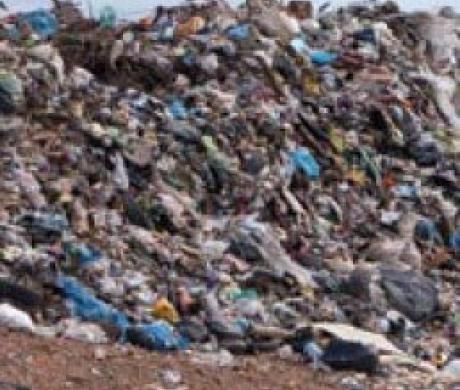Extended Producer Responsibility: Protecting Public Health and the Environment
Jen Jackson is toxics reduction program manager for the San Francisco Department of the Environment and can be reached at jen.jackson@sfgov.org. Heidi Sanborn is executive director of the California Product Stewardship Council and can be reached at heidi@calpsc.org.
Local governments throughout California are implementing innovative strategies to serve their residents and communities. When it comes to protecting the natural environment, public agencies must leverage limited resources and focus on preventing pollution at the source to avoid much more costly cleanups in the future. Ensuring that residents properly dispose of hazardous wastes — such as pesticides, batteries, needles and pharmaceuticals — from their homes is an important part of protecting the environment and public health.
Disposing of Household Pharmaceutical Waste
The City and County of San Francisco established a pilot collection program in 2012 for unwanted and expired pharmaceuticals. In less than three years, the program collected over 47,000 pounds of leftover medication from residents.
However, safely collecting and disposing of wastes like these is extremely expensive, and many local governments like San Francisco are working with the California Product Stewardship Council (CPSC) to find a better way. CPSC is a network of local governments, nongovernment organizations, businesses and individuals supporting policies and projects where producers share responsibility for managing problem products at the end of the product’s useful life, a concept known as extended producer responsibility (EPR).
Local Government Prevails in an Uphill Battle
The California Legislature has passed EPR legislation addressing a variety of hard-to-manage wastes — including mercury thermostats in 2008, brake pads, carpet and paint in 2010 and mattress disposal in 2013 — to ensure producers have some share in the responsibility for the products from which they profit. Passing statewide legislation is not easy; in the case of pharmaceuticals, manufacturers lobbied heavily to defeat two bills in 2013 and 2014 authored by Senator Hannah-Beth Jackson (D-Santa Barbara) and sponsored by five organizations including the City and County of San Francisco, Alameda County, CPSC, Clean Water Action and California Alliance for Retired Americans. Supporters included law enforcement, doctors, veterinarians, drug abuse prevention groups and others. Manufacturers and their associations opposed the legislation, despite the fact that manufacturers provide safe disposal options in many other countries, including Mexico and Canada.
Alameda County was the first local jurisdiction in the nation to adopt an EPR ordinance and defend it in court. Litigation against Alameda County resulted in a unanimous ruling by the Ninth Circuit Court of Appeals to up-hold the county’s ordinance. Although manufacturers appealed the case to the U.S. Supreme Court, the court refused to hear the case in May 2015.
As a result, any local government can now require producers to pay for management systems for hazardous products. San Francisco followed Alameda County’s lead and worked to pass a local EPR ordinance in 2015 requiring pharmaceutical manufacturers to establish and fund collection and disposal of residents’ unwanted medications. Numerous other jurisdictions are looking to do the same.
Resources for Cities
CPSC and San Francisco stand ready to partner with other cities to reduce costs and collect and properly manage more product waste — and protect public health and the environment. For more information on EPR systems and taking action on this issue, visit www.calpsc.org. To learn more about San Francisco’s Safe Medicine Disposal Ordinance, visit www.sfenvironment.org/article/business/safe-drug-disposal-stewardship-ordinance or contact Jen Jackson; phone: (415) 355-3758; email: jen.jackson@sfgov.org.
Additional Resources
San Francisco Environment Safe Drug Disposal Stewardship Ordinance
California Product Stewardship Council (CPSC) Press Release on Supreme Court decision
This article appears in the January 2016 issue of
Western City
Did you like what you read here? Subscribe to Western City





